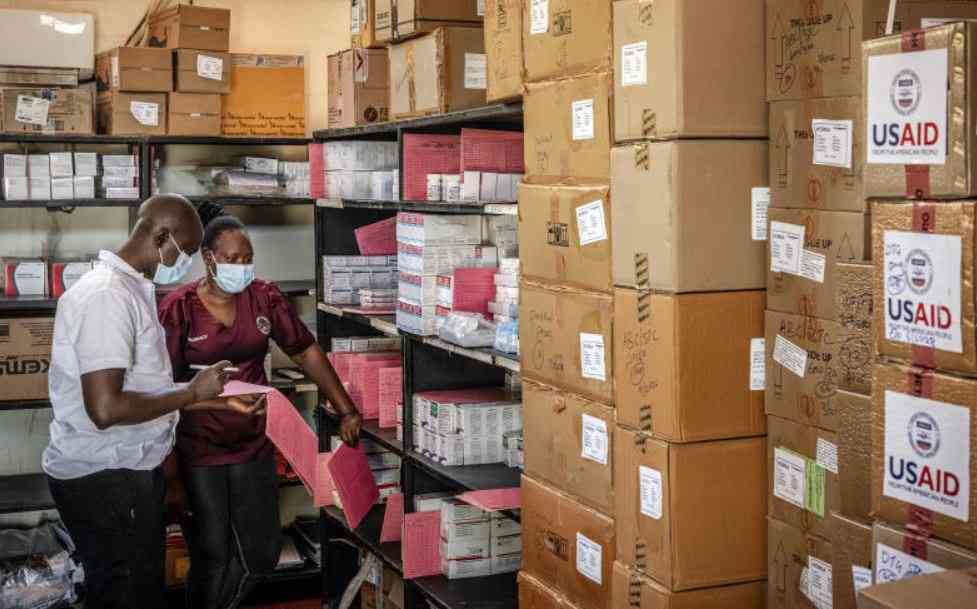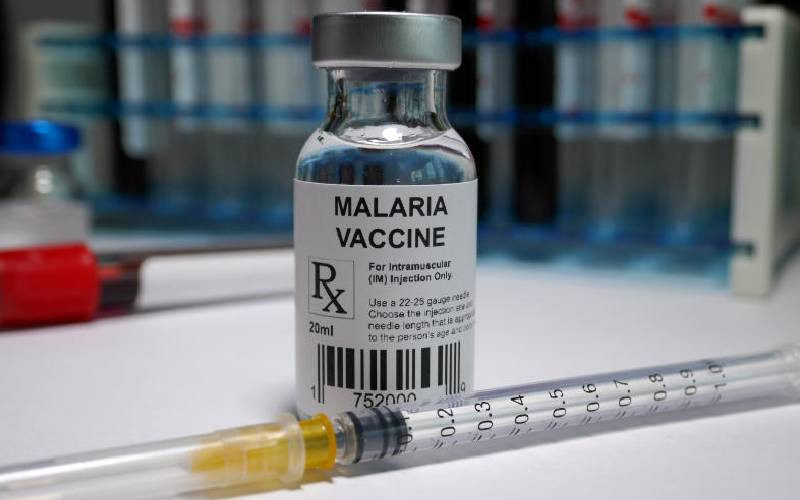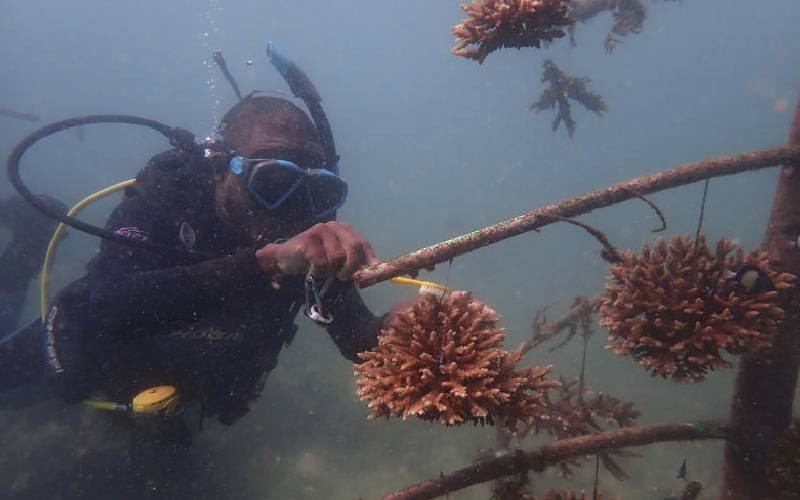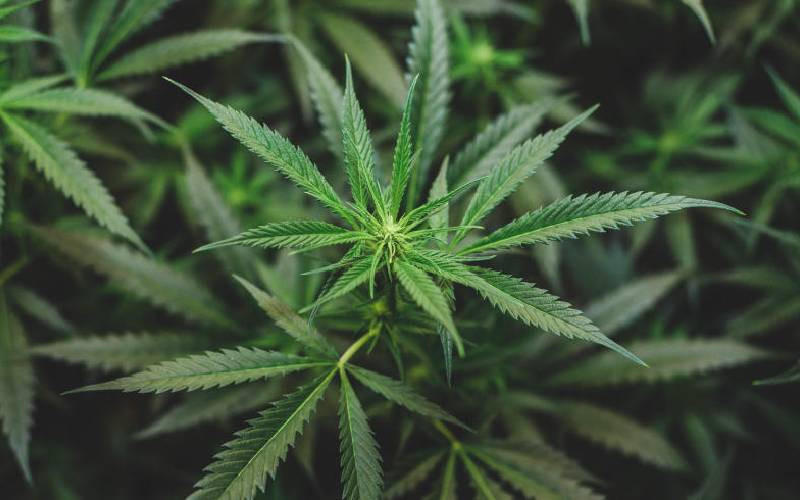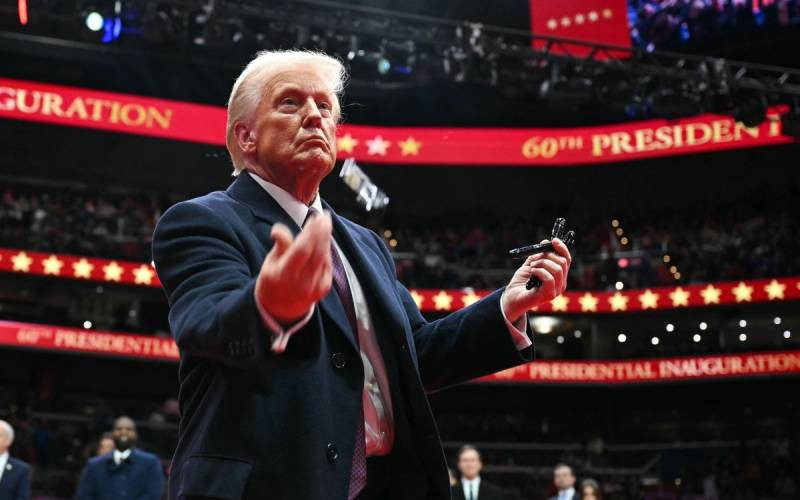
US President Donald Trump throws pens to the crowd after signing executive orders during the inaugural parade inside Capital One Arena, in Washington, DC, on January 20, 2025. [Photo, AFP]
President Donald Trump's executive orders initiating the United States' withdrawal process from the World Health Organisation (WHO) are expected to impact global health and climate change efforts significantly.
On his first Monday in office after being sworn in, Trump signed several orders addressing health, immigration, foreign policy, and climate change.
Citing the WHO's handling of the COVID-19 pandemic, its failure to adopt critical reforms, and alleged political influence by member states, Trump's statement partly read:
"Due to the organisation's mishandling of the COVID-19 pandemic that arose out of Wuhan, China, and other global health crises, its failure to adopt urgently needed reforms, and its inability to demonstrate independence from the inappropriate political influence of WHO member states."
US State Secretary is expected to formally notify the United Nations Secretary-General of America's withdrawal.
Hours later, the WHO expressed concern, noting the decision was regrettable, and urged Trump to reconsider.
- Trump pulls US from World Health pandemic reforms
- Maternal health in peril after US orders burning of medical supplies
- Suicide behind one in every 100 deaths: WHO
- Breaking the spell: Fighting myths that hinder epilepsy treatment
Keep Reading
"This work continues. We hope the United States will reconsider and look forward to engaging in constructive dialogue to maintain the partnership between the USA and WHO, for the benefit of the health and well-being of millions of people around the globe," WHO said in a statement on Tuesday.
The WHO acknowledged the US's contributions to combating global health threats, including its efforts in eradicating smallpox and promoting polio vaccination.
Health setbacks
The U.S. is the largest financial contributor to WHO, hence its withdrawal could greatly affect global health programs.
Scientists and public health experts warn that the withdrawal could undermine decades of progress in fighting infectious diseases like AIDS, malaria, and tuberculosis.
They also fear it could weaken global defenses against emerging outbreaks capable of triggering pandemics.
Nelson Otwoma, Director of the National Empowerment Network of People Living with HIV/AIDS (NEPHAK), expressed concern over the impact on Kenya and called for increased funding.
"It is regrettable, but other nations still need to invest in the WHO. America, through Trump, is abdicating its duty as a global public health leader, but the world cannot just sit and watch. WHO Member States should fund it. All countries, including Kenya, need to invest in the health and well-being of their citizens," said Otwoma.
Kenya, which relies heavily on U.S. healthcare support, faces potential challenges.
Bernard Baridi, National HIV Prevention Ambassador, described the move as a blow to vulnerable citizens who depend on donated drugs.
"African countries, especially Kenya, need to reduce donor dependency and look for alternative resources," Baridi said.
He urged the U.S. Congress to intervene while calling on the Kenyan government to find solutions to prevent disruptions in the supply of essential medicines and vaccines.
Climate impact
Trump also signed orders to withdraw from the Paris Climate Agreement, delivering a major setback to global efforts to combat climate change.
He revoked the 2021 President Joe Biden's order that sought to ensure half of all new vehicles sold in the US by 2030 were electric.
"America will be a manufacturing nation once again, and we have something that no other manufacturing nation will ever have: the largest amount of oil and gas of any country on Earth," Trump said.
Simon Stiell, the UN Climate Change Executive Secretary, criticised Trump's decision, noting that the shift in U.S. policy comes amid record-breaking global temperatures in 2023 and 2024, which surpassed the 1.5 degrees Celsius threshold set by the Paris Accord.
"The science has been weaponised, and that reflects the politics," Stiell said, adding that support for climate science remains stronger than the voices opposing it.
This marks the second time Trump has initiated such withdrawals.
His decision comes as the world grapples with the tangible effects of climate change, highlighting the urgency of unified global action.
 The Standard Group Plc is a multi-media organization with investments in media
platforms spanning newspaper print
operations, television, radio broadcasting, digital and online services. The
Standard Group is recognized as a
leading multi-media house in Kenya with a key influence in matters of national
and international interest.
The Standard Group Plc is a multi-media organization with investments in media
platforms spanning newspaper print
operations, television, radio broadcasting, digital and online services. The
Standard Group is recognized as a
leading multi-media house in Kenya with a key influence in matters of national
and international interest.


